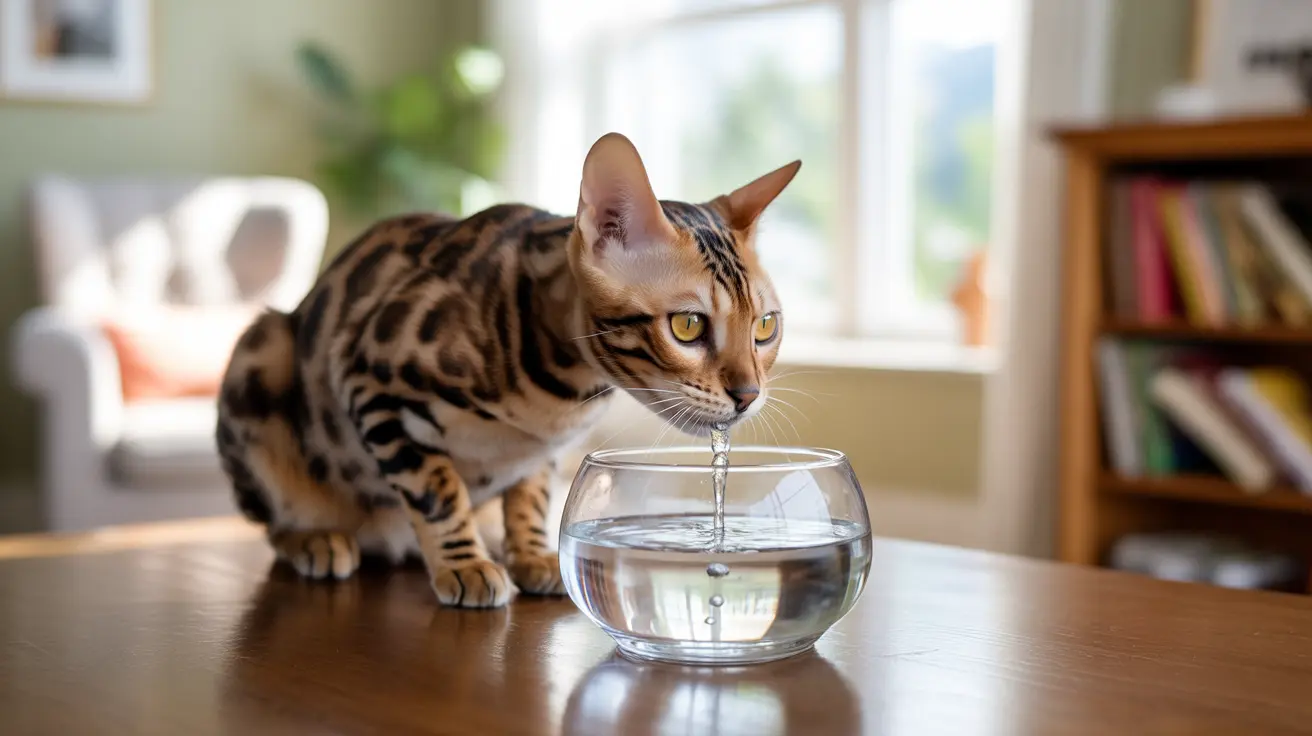As cat owners become increasingly health-conscious, questions about what their feline friends can safely drink have become more common. One frequent query is whether cats can drink mineral water. Let's explore this topic in detail, examining both the safety considerations and best practices for keeping your cat properly hydrated.
While mineral water might seem like a healthy alternative to tap water for humans, the situation is quite different for our feline companions. Understanding why requires looking at cats' unique hydration needs and how their bodies process different types of water.
Understanding Cats' Natural Hydration Needs
Cats have evolved from desert-dwelling ancestors, which has significantly influenced their drinking habits and water requirements. A typical cat needs about 50-60 ml of water per kilogram of body weight daily. For an average 4 kg cat, this translates to approximately 200-240 ml of water per day.
Their natural inclination is to obtain much of their hydration from their food, which explains why cats on dry food diets need to drink more water than those eating wet food.
The Truth About Mineral Water and Cats
While still mineral water isn't typically toxic to cats, it's not recommended as a regular water source. The high mineral content can potentially cause problems, especially for cats with existing health conditions. Carbonated mineral water poses even greater risks, potentially leading to:
- Bloating and stomach discomfort
- Gastrointestinal upset
- Possible diarrhea or constipation
- Increased risk of urinary issues
Potential Risks of Mineral Water for Cats
Several concerns arise when considering mineral water for cats:
Mineral Content Concerns
High levels of certain minerals can be problematic:
- Excessive sodium may affect cats with heart or kidney conditions
- High magnesium levels could contribute to urinary crystal formation
- Calcium content might affect cats prone to bladder stones
Carbonation Issues
Carbonated mineral water can cause:
- Digestive system discomfort
- Gas and bloating
- Potential stomach upset
- Reduced desire to drink water
Safe Water Options for Your Cat
The best water choices for cats are:
- Fresh, clean tap water
- Filtered water at room temperature
- Water from pet fountains (for cats who prefer running water)
- Daily cleaned and refreshed water bowls
Ensuring Proper Hydration for Your Cat
To maintain optimal hydration:
- Place multiple water bowls throughout your home
- Clean water bowls daily
- Consider adding wet food to their diet
- Monitor water intake, especially in senior cats or those with health conditions
Frequently Asked Questions
Can cats safely drink mineral water or sparkling water?
While cats can technically drink still mineral water in small amounts, it's not recommended, especially sparkling water. Regular tap or filtered water is the safest and most appropriate option.
What are the health risks if my cat drinks carbonated mineral water?
Carbonated mineral water can cause bloating, stomach discomfort, and digestive issues in cats. It may also lead to reduced water intake due to the unfamiliar taste and sensation.
How much water does a cat need daily, and does mineral water meet these needs?
Cats need about 50-60 ml of water per kilogram of body weight daily. While mineral water could technically meet this requirement, regular clean water is better suited to their needs.
Is plain tap water better than mineral water for keeping my cat hydrated?
Yes, plain tap water is better than mineral water for cats. It's naturally balanced and free from excessive minerals that could potentially cause health issues.
What signs show my cat might be dehydrated or affected by drinking mineral water?
Signs include lethargy, reduced skin elasticity, dry gums, decreased appetite, and reduced urination. If your cat shows these symptoms after drinking mineral water, switch to regular water and consult a veterinarian if symptoms persist.
Remember, when it comes to your cat's hydration, simpler is better. Stick to fresh, clean water, and always consult your veterinarian if you have concerns about your cat's drinking habits or hydration levels.






